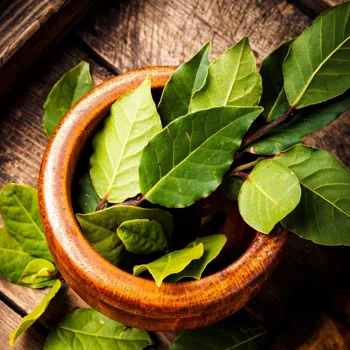Explore the enduring wisdom of Herbal Medicine in India, a timeless tradition offering holistic healing and well-being
From the bustling bazaars of Chandni Chowk to the serene villages nestled in the Himalayas,
India has always held a deep connection with the healing power of plants.
Herbal medicine, also known as Ayurveda and other traditional systems, isn't some new-fangled trend; it's an ancient legacy, a treasure trove of knowledge passed down through generations.
Even now, in our modern world of fancy pharmaceuticals, these age-old practices continue to offer solace, healing, and a pathway to holistic well-being for millions. This is especially true in rural India, where access to modern healthcare can be limited, making herbal remedies a vital lifeline.
Ancient Indian roots of herbal medicine in Ayurveda
The roots of herbal medicine in India stretch back thousands of years, entwined with the very fabric of our civilization. The Vedas, ancient scriptures dating back to around 1500 BCE, contain hymns and verses that mention the medicinal properties of various plants.
This early knowledge was further systematized and refined into Ayurveda, the "science of life," which is considered one of the oldest medical systems in the world.
Ayurveda emphasizes maintaining balance within the body, mind, and spirit, and uses herbs in conjunction with lifestyle adjustments, dietary recommendations, and detoxification practices to achieve optimal health.
Charaka Samhita and Sushruta Samhita, classic texts of Ayurveda, meticulously detail the identification, properties, and uses of hundreds of herbs, from the well-known turmeric and ginger to the more obscure ashwagandha and brahmi.
Traditional remedies honor plant-based healing wisdom
Think of your grandmother's remedies – a pinch of turmeric in warm milk for a sore throat, or a ginger-honey concoction to ward off a cold. These time-tested treatments aren’t just old wives' tales; they are echoes of a sophisticated understanding of plant-based healing.
The knowledge of these remedies was traditionally passed down through families, with elders acting as the custodians of this valuable wisdom, ensuring that each generation inherited the understanding of which herbs could soothe a cough, heal a wound, or ease indigestion.
This type of knowledge transfer was not limited to practical applications; it also encompassed a deep respect for nature and the delicate balance of the ecosystem. The use of herbs was seen as a partnership with nature, a way to harness the healing power of the earth for the benefit of humankind.
Traditional Indian medicine systems rely on herbal remedies, reflecting rich cultural heritage
Beyond Ayurveda, other traditional systems of medicine in India, such as Siddha and Unani, also rely heavily on herbal remedies. Siddha medicine, prevalent in South India, focuses on balancing the three doshas (vata, pitta, and kapha) through the use of herbs, minerals, and metallic preparations.
Unani medicine, which originated in Greece and was later enriched in India, also employs herbal remedies along with other natural therapies.
Each of these systems has its own unique approach to diagnosis and treatment, but all share a common thread: a deep understanding of the healing potential of the plant kingdom.
The diversity of these systems reflects India's rich cultural heritage and its long history of integrating different medical traditions.
Renewed interest in herbal remedies for holistic healthcare
Today, as the world becomes increasingly aware of the limitations and potential side effects of conventional medicine, there is a renewed interest in herbal remedies. People are seeking natural alternatives for managing chronic conditions, boosting immunity and improving overall well-being.

This growing demand has led to a resurgence of Ayurveda and other traditional systems, with practitioners and researchers working to validate the efficacy of herbal medicines through scientific studies.
Many herbs that have been used for centuries are now being investigated for their potential to treat a wide range of ailments, from anxiety and depression to diabetes and heart disease.
The integration of traditional knowledge with modern science is paving the way for a more holistic and integrated approach to healthcare.
Exercise caution with herbal medicine, seek qualified guidance
However, with the increasing popularity of herbal medicine, it is extremely important to exercise caution and seek guidance from qualified practitioners. Not all herbal products are created equal, and some may be adulterated with harmful substances or interact with prescription medications.
It is essential to source herbs from reputable suppliers and to consult with an Ayurvedic doctor or other trained herbalist before starting any new herbal treatment.
Self-treating with herbs can be risky, especially for individuals with underlying health conditions or who are taking other medications. By approaching herbal medicine with knowledge, respect, and guidance, we can harness its power responsibly and safely.
Remember, these ancient practices offer a wealth of knowledge and potential benefits, but it's important to tread carefully and prioritize your health and safety above all else. This approach will ensure that these traditions continue to thrive for generations.
AI Generated Content. Glance/InMobi shall have no liability for the content











